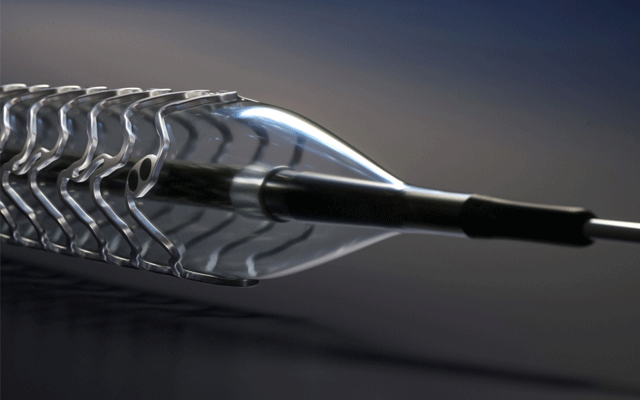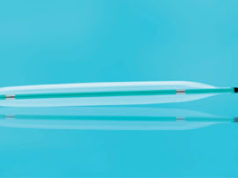
A press release reports that preliminary data from the BIOSOLVE-IV registry strengthen the clinical evidence in favour a bioresorbable magnesium scaffold (Magmaris, Biotronik) for de novo coronary artery lesions. Presented as late-breaking clinical data at the 2019 Cardiovascular Research Technologies (CRT) meeting (2–5 March 2019, Washington, DC, USA), 12-month results from the first 600 patients of the registry showed low target lesion failure rates at 5.1% and low incidences of scaffold thrombosis at 0.5%.
The prospective, multicentre BIOSOLVE-IV study with a full cohort of 2,054 patients investigates the clinical performance and long-term safety of Magmaris. The preliminary results were presented at CRT 2019 by BIOSOLVE-IV clinical investigator Stefano Galli (Laboratorio di Emodinamica, Centro Cardiologico Monzino, Milan, Italy) comments: “The new results reinforce the perception of magnesium resorbable scaffolds as a safe and efficacious option. Especially younger patients with a long life expectancy can benefit from this technology which may enable future interventions years ahead as the disease may progress. Moreover, the relatively quick resorption time should help avoid late complications.”
Magmaris has resorbs into the body within 12 months after implantation leaving the vessel uncaged. The press release states that this resorption profile is a key reason Magmaris is unlike any poly-L-lactic (PLLA) based bioresorbable scaffold. Magmaris consists of a magnesium alloy that allows a fast resorption time. About 95% of the scaffold’s magnesium resorbs within one year after implantation. Early resorption of the scaffold is believed to help prevent very late scaffold thrombosis, a potentially dangerous complication. In contrast, the resorption time for bioresorbable scaffolds is three to four years.
Alexander Uhl, senior vice president corporate marketing at Biotronik, says: “More than 1,400 patients have been enrolled into the Magmaris’ clinical programme so far. The new data presented at CRT further supports our conviction that magnesium scaffolds provide unique benefits and are a valuable treatment option in today’s percutaneous coronary interventions.”









